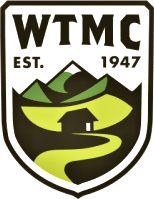Richard Lardner, Transport Officer
One of the club’s selling points is that the club owns two vans. This makes it easy for us to arrange transport and to travel together as a group on club trips. Taking one van instead of three private cars puts less pressure on drivers, is cheaper overall and better for the environment. It means we share the risks and liabilities of leaving vehicles at road ends, rather than asking individuals to carry this.
One question we are often asked is how we calculate our trip fares. When calculating trip fares, we need to cover all the costs associated with the vans. These include things like parking during the week, servicing, warrants of fitness, registration, road user charges, insurance and maintenance. We also take into account depreciation of the vans each year, so that when the vans need replacing we will have built up enough capital to do so.
It’s easy to assume that the trip fare should equate to the cost of fuel, but in fact this only makes up about half the trip fare. Together the other components make up a similar amount. For example, each van costs around $6000 to run per year – excluding fuel, road user charges and maintenance.
We need to make sure that trip fares cover the total cost of owning the vans so that the club isn’t losing money on them. The costs are averaged out over all the trips, based on the vans being used 40 weekends each year. Similarly, you’ll find if you use your own vehicle for work purposes, the rate at which your employer reimburses you takes the total cost of the vehicle into account, rather than just the petrol you’ve used.
Moving on from van costs, one of the roles of transport officer is to allocate the vans to trips each weekend. To do this I need to know the number of people on each trip every weekend. For all overnight trips, it would be great if trip leaders remember to email me ([email protected]) the number of people on each trip as soon as you know final numbers. Also, trip leaders should email or text me the odometer readings of vans after the trip is finished.
Finally, a big thanks to Michael Schier and David Bakker for volunteering to clean the vans every month.
